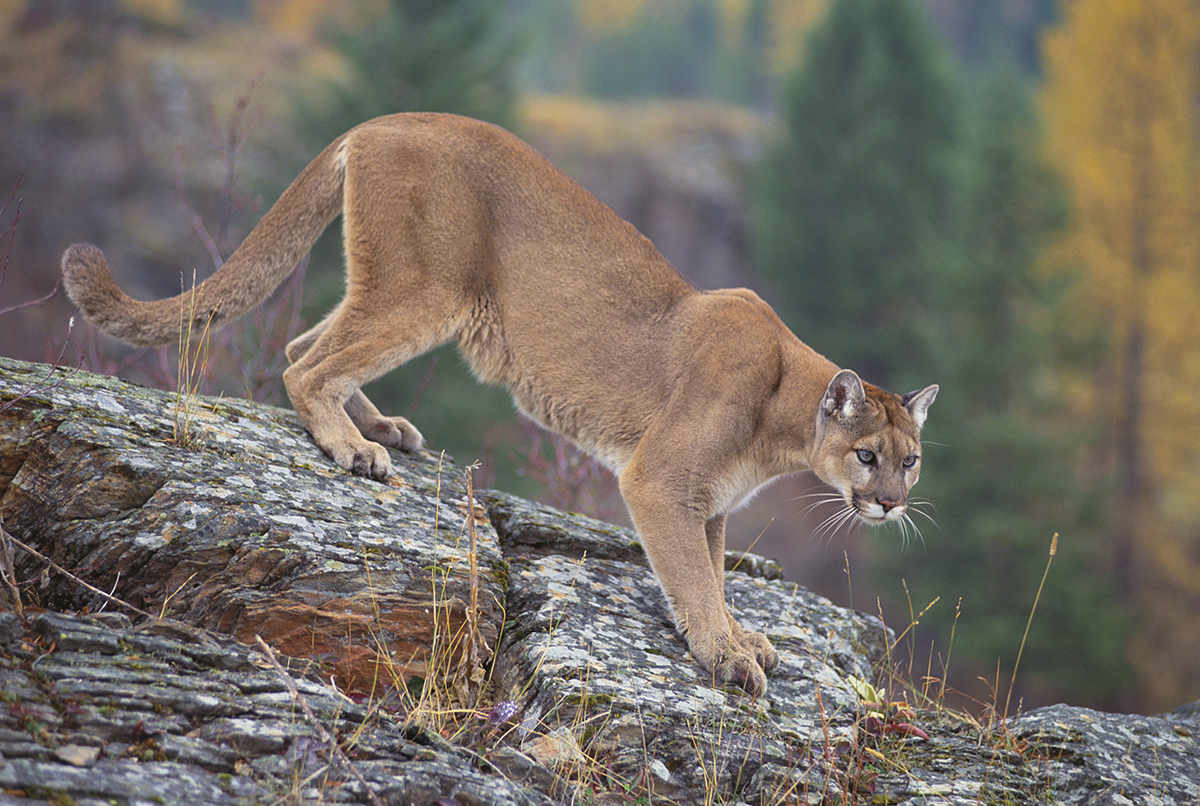Mountain Lions

Your chances of encountering a mountain lion are small. However, mountain lion attacks have been on the rise as humans increasingly enter these cats’ territory. If at any time you spot a mountain lion, report the sighting or encounter to your local forest ranger station or visitor center as soon as possible.
Mountain lion facts
The mountain lion is also known as cougar, panther, or puma. Body coloration can range from tan to gray and cubs are usually covered with blackish brown spots.
Adult males may be more than 8 feet long (from the tip of the nose to the tip of the tail), and can weigh between 130 and 150 pounds. Adult females can be 7 feet long and weigh between 65 and 90 pounds.
Generally speaking, mountain lions can be found wherever deer are present. Their usual habitat is steep, rocky canyons or mountainous terrain.
Mountain lions can be found in deserts as well as coastal forests, and from sea level to 10,000-foot elevations.
An adult male's home range is typically more than 100 square miles and females generally use smaller areas, approximately 20 to 60 square miles
Hiking and camping in mountain lion habitat
Do not hike alone. Go in groups, with adults supervising children.
Avoid dawn and dusk excursions.
Keep children close to you. Animals seem especially drawn to children.
Pick up small children. The mountain lion will see small children as easier prey.
Do not approach a lion. Most mountain lions will try to avoid confrontation, so give them a way to escape.
Do not run from a lion. Running may stimulate a mountain lion's instinct to chase.
Do not crouch down or bend over. A human standing does not resemble a mountain lion's natural prey.
Do all you can to appear larger. Raise your arms. Open your jacket if you are wearing one. Wave your arms slowly and speak firmly in a loud voice.
Fight back if attacked. Mountain lions usually try to bite the head or neck; try to remain standing and face the attacking animal.
Remember: You are responsible for your safety and for the safety of those around you.
